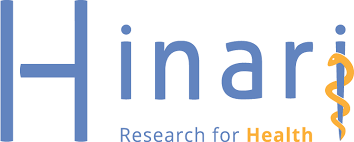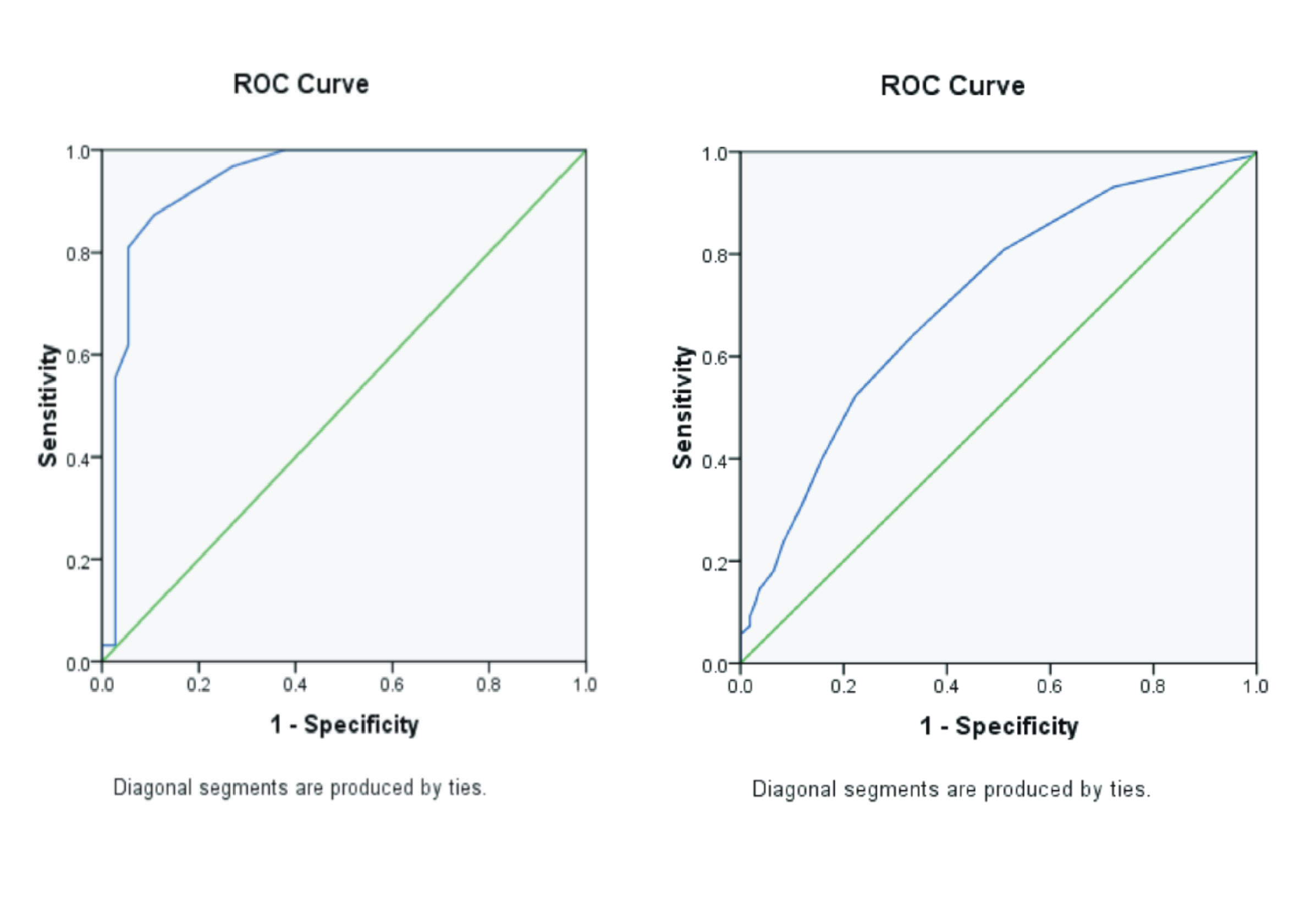CORRELATIONS OF SHIFT WORK 2-2-2(2) ROTATION ON SLEEP QUALITY AND FATIGUE OF NURSES IBNU SINA GRESIK GENERAL HOSPITAL

Downloads
Background: Working as a nurse in a hospital required to work with a shift system. Working with the shift system (morning, afternoon, and night) can affect the circadian rhythm, which has the potential to cause sleep disturbances and fatigue. Purpose: This research aims to analyze the influence of shift work rotation 2-2-2(2) on sleep quality and fatigue in nurses with shift work systems in inpatient rooms at General Hospital Ibnu Sina Gresik. Method: This research was an observational analytics study with a cross-sectional design. The total sample was 80 nurses in an inpatient care unit with a shift work system chosen through purposive sampling techniques. The Subjective Self-Rating Test (SSRT) issued by the Industrial Fatigue Research Committee (IFRC) questionnaire was used for the measurement of fatigue, and the Pittsburgh Sleep Quality Index questionnaire (PSQI) was used for the assessment of sleep quality. Univariate and bivariate analyses were done with a Chi-square statistical test. Result: The study showed that most respondents had good sleep quality (87.5%), and most had low tiredness (71.2%). The Chi-square test results obtained a p-value of 0.224 > 0.05 and a p-value of 0.108 > 0.05, meaning there were no correlations between shift work and sleep quality and fatigue. Conclusion: Shift work had no relationship with sleep quality and fatigue. Appropriate shift work arrangements can contribute to reducing the negative impact of shift work.
Afifah, A., Ismawati, I., Irasanti, S., 2021. Hubungan Shift Kerja dengan Kualitas Tidur pada Pekerja Perusahaan Fast Moving Consumer Goods (FMCG) Tahun 2020. J. Integrasi Kesehat. Sains Vol. 3 (2), Pp. 221-226.
Almeida, C.M.O. de, Malheiro, A., 2016. Sleep, Immunity And Shift Workers: A review. Sleep Sci. Vol. 9(3), Pp. 164-168.
Benzo, R.M., Farag, A., Whitaker, K.M., Xiao, Q., Carr, L.J., 2022. Examining The Impact of 12-Hour Day and Night Shifts on Nurses' Fatigue: A Prospective Cohort Study. Int. J. Nurs. Stud. Adv. Vol. 4, Pp. 100076.
Burch, J.B., Alexander, M., Balte, P., Sofge, J., Winstead, J., Kothandaraman, V., Ginsberg, J.P., 2019. Shift Work and Heart Rate Variability Coherence: Pilot Study among Nurses. Appl. Psychophysiol. Biofeedback Vol. 44(1), Pp. 21-30.
Buysee, D.J., Reynolds, C.F., Monk, T.H., Berman, S.R., Kupfer, D.J., 2016. Pittsburgh Sleep Quality Index.
Effendi, M., Ariani, R., Astuti, R., 2021. Determination of Work Schedule Based on Employee Data Classification using the Decision Tree Algorithm C4.5 Method. Ind. J. Teknol. dan Manaj. Agroindustri Vol. 10(3), Pp. 249-259.
Fachlefi, S., Rambe, A., 2021. Hubungan Kualitas Tidur dan Fungsi Kognitif Siswa MAN Binjai. Scr. SCORE Sci. Med. J. Vol. 3(1), Pp. 8-16.
Fadila, S.M., 2021. Pengaruh Shift Kerja terhadap Kelelahan Kerja pada Pekerja PT Lotus (Skripsi). STIKES Bhakti Husada Mulia Madiun, Peminatan Kesehatan dan Keselamatan Kerja Program Studi SI Kesehatan Masyarakat.
Fatona, L., Tarwaka, Wedani, K.E., All, E., 2015. Perbedaan Tingkat Kelelahan antara Shift Pagi, Sore dan Malam pada Perawat Rawat Inap di RS PKU Aisyiyah Boyolali. Univ. Muhammadiyah Surak. Universitas Muhammadiyah Surakarta.
Ferri, P., Guadi, M., Marcheselli, L., Balduzzi, S., Magnani, D., Di Lorenzo, R., 2016. The Impact of Shift Work on The Psychological and Physical Health of Nurses in A General Hospital : A Comparison between Rotating Night Shifts and Day Shifts. Risk Manag. Healthc. Policy Vol. 9, Pp. 203-211.
Gander, P., O'Keeffe, K., Santos-Fernandez, E., Huntington, A., Walker, L., Willis, J., 2020. Development and Evaluation of A Matrix for Assessing Fatigue-Related Risk, Derived from A National Survey of Nurses' Work Patterns'. Int. J. Nurs. Stud. Vol. 112, Pp. 103573.
Ganesan, S., Magee, M., Stone, J.E., Mulhall, M.D., Collins, A., Howard, M.E., Lockley, S.W., Rajaratnam, S.M.W., Sletten, T.L., 2019. The Impact of Shift Work on Sleep, Alertness and Performance in Healthcare Workers. Sci. Rep. Vol. 9(1), Pp. 4635.
Gifkins, J., Johnston, A., Loudoun, R., Troth, A., 2020. Fatigue and Recovery in Shiftworking Nurses : A Scoping Literature Review. Int. J. Nurs. Stud., Shift Work in Nursing: Closing The Knowledge Gaps and Advancing Innovation In Practice Vol. 112, Pp. 103710.
Härmä, M., Karhula, K., Ropponen, A., Puttonen, S., Koskinen, A., Ojajärvi, A., Hakola, T., Pentti, J., Oksanen, T., Vahtera, J., Kivimäki, M., 2018. Association of Changes in Work Shifts and Shift Intensity with Change in Fatigue and Disturbed Sleep: A within-Subject Study. Scand. J. Work. Environ. Health Vol. 44(4), Pp. 394-402
Ho, N.T., Santoro, F., Palacios Jimenez, C., Pelligand, L., 2023. Cross-Sectional Survey of Sleep, Fatigue and Mental Health in Veterinary Anaesthesia Personnel. Vet. Anaesth. Analg. Vol. 50(4), Pp. 315-324.
Hutabarat, J., 2021. Dasar-Dasar Pengetahuan Ergonomi, 1 st. ed. Media Nusa Creative (MNC Publishing), Malang.
ILO, 2023. Working Time and Work-Life Balance Around the World (Report).
Jannah, H.F., Tualeka, A.R., 2022. Hubungan Status Gizi dan Shift Kerja dengan Kelelahan Kerja pada Perawat di RSUI Yakssi Gemolong, Sragen : Media Publ. Promosi Kesehat. Indones. MPPKI Vol. 5(7), Pp. 828-833.
Jeong, K.S., Ahn, Y.-S., Jang, T.-W., Lim, G., Kim, H.D., Cho, S.-W., Sim, C.-S., 2019. Sleep Assessment during Shift Work in Korean Firefighters: A Cross-Sectional Study. Saf. Health Work Vol. 10(3), Pp. 254-259.
Ki, J., Ryu, J., Baek, J., Huh, I., Choi-Kwon, S., 2020. Association between Health Problems and Turnover Intention in Shift Work Nurses: Health Problem Clustering. Int. J. Environ. Res. Public. Health Vol. 17(12), Pp. 4532.
Kida, R., Takemura, Y., 2022. Working Conditions and Fatigue in Japanese Shift Work Nurses: A Cross-sectional Survey. Asian Nurs. Res. Vol. 16(2), Pp. 80-86.
Krimadies, K., Maulina, D., 2023. Analisa Hubungan Shift Kerja dengan Stres Kerja dan Kelelahan pada Perawat Rumah Sakit X Batam Tahun 2022. J. Ners Commmunity Vol. 13(1), Pp. 8-12.
Law the Republic Indonesia Number 13, 2003. UU No. 13 Tahun 2003 Tentang Ketenagakerjaan.
Law the Republic Indonesia Number 1, 2000. UU No. 11 Tahun 2020 Tentang Cipta Kerja.
Liu, D., Kahathuduwa, C., Vazsonyi, A.T., 2021. The Pittsburgh Sleep Quality Index (PSQI): Psychometric and Clinical Risk Score Applications among College Students. Psychol. Assess. Vol. 33(9), Pp. 816-826.
Min, A., Min, H., Hong, H.C., 2019. Work Schedule Characteristics and Fatigue among Rotating Shift Nurses in Hospital Setting: An Integrative Review. J. Nurs. Manag. Vol. 27(5), Pp. 884-895.
Muhamad Ramdan, I., 2019. Measuring Work Fatigue on Nurses: A Comparison between Indonesian Version of Fatigue Assessment Scale (FAS) and Japanese Industrial Fatigue Ressearch Commite (JIFRC) Fatigue Questionnaire. Padjadjaran Nurs. J. J. Keperawatan Padjadjaran Vol. 7(2), 141–151.
Murwidi, I.C., 2018. Pengaruh Kerja Shift terhadap Kadar Glutamic Acid Decarboxylase 65 (GAD65) dalam Serum Darah. J. Kesehat. Vol. 9(1), Pp. 80-85.
Narpati, J.R., Ekawati, E., Wahyuni, I., 2019. Hubungan Beban Kerja Fisik, Frekuensi Olahraga, Lama Tidur, Waktu Istirahat dan Waktu Kerja dengan Kelelahan Kerja (Studi kasus pada pekerja Laundry Bagian Produksi Di CV.X Tembalang, Semarang). J. Kesehat. Masy. Vol. 7(1), Pp. 337-344.
Noviyanti, I., Supriyadi, 2020. Hubungan Kondisi Kerja dengan Kelelahan Kronis pada Perawat di Ruang Rawat Inap RSUD Wonosari. J. Keperawatan Akper YKY Yogyak. Vol. 12(2), Pp. 71-79.
Nuraini, D., Ramdhan, D.H., 2021. Effect of Daily Trip System on PT. X Contractor Worker Fatigue at Offshore Site. J. Vocat. Health Stud. Vol. 5(2), Pp. 73-79.
Nurmufidah, M., Rumita, R., 2021. Analisis Kelelahan Kerja dengan Metode Subjective Self Rating (Studi Kasus : Pekerja Bagian Produksi ) UD Kurnia Mandiri. J. Ergon. Dan K3 Vol. 6(2).
Pujiastuti, A.T., Lestantyo, D., Wahyuni, I., Jayanti, S., 2021. Analisis Tingkat Kelelahan Berdasarkan Beban Kerja Fisik Perawat di Ruang Isolasi Rumah Sakit X saat Pandemi Corona Virus (Covid – 19). J. Ris. Kesehat. Masy. Vol. 1(1), Pp. 1-7.
Rhamdani, I., Wartono, M., 2019. Hubungan antara Shift Kerja, Kelelahan Kerja dengan Stres Kerja pada Perawat. J. Biomedika Dan Kesehat. Vol. 2(3), Pp. 104-110.
Roberts, C., 2016. Psychology for Cambridge International AS and A Level Revision Guide, 2 nd. ed. Oxford University Press.
Sesrianty, V., Marni, S., 2021. Hubungan Shift Kerja dengan Kelelahan Kerja Perawat di RSUD Adnaan WD Payakumbuh. J. Cakrawala Ilm. Vol. 1(4), Pp. 675-684.
Sihombing, E.D.J., Girsang, E., Siregar, S.D., 2021. Faktor yang berhubungan dengan Kelelahan Kerja Perawat di Rumah Sakit Umum Daerah Tarutung. JUMANTIK J. Ilm. Penelit. Kesehat. Vol. 6(2), Pp. 137-144.
Siregar, T., Wenehenubun, F., 2019. Hubungan Shift Kerja dengan Tingkat Kelelahan Kerja Perawat di Ruang Instalasi Gawat Darurat RSUD Budhi Asih, Jakarta Timur. J. Persada Husada Indones. Vol. 6(22), Pp. 1-8.
Suma'mur, 1992. Higene Perusahaan dan Kesehatan Kerja, Cetakan 8, Cetakan 9. ed. Haji Masagung, Jakarta.
Sunarno, S., Ramdhan, D., Efendi, H., Amalaili, P., Rizky, Z., 2018. Study of Shift Work, Quantity and Quality of Sleep with the Occurrence of Fatigue at Universitas Indonesia Security, 2017. KnE Life Sci. Vol. 4(5), 709.
Yudha Nagara, A., Triyuliarto, D., Alamsyah, A., 2019. Perbedaan Fungsi Kognitif dan Kortisol pada Residen Kedokteran Emergensi dengan Pola Kerja Sif. Maj. Kesehat. Vol. 6(3), Pp. 185-195.
Zhang, L., Sun, D.-M., Li, C.-B., Tao, M.-F., 2016. Influencing Factors for Sleep Quality among Shift-working Nurses: A Cross-Sectional Study in China Using 3-factor Pittsburgh Sleep Quality Index. Asian Nurs. Res. Korean Soc Nurs Sci Vol. 10(4), Pp. 277-282
Copyright (c) 2024 Journal of Vocational Health Studies

This work is licensed under a Creative Commons Attribution-NonCommercial-ShareAlike 4.0 International License.
- The authors agree to transfer the transfer copyright of the article to the Journal of Vocational Health Studies (JVHS) effective if and when the paper is accepted for publication.
- Legal formal aspect of journal publication accessibility refers to Creative Commons Attribution-NonCommercial-ShareAlike (CC BY-NC-SA), implies that publication can be used for non-commercial purposes in its original form.
- Every publications (printed/electronic) are open access for educational purposes, research, and library. Other that the aims mentioned above, editorial board is not responsible for copyright violation.
Journal of Vocational Health Studies is licensed under a Creative Commons Attribution-NonCommercial-ShareAlike 4.0 International License














































